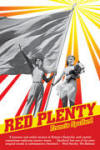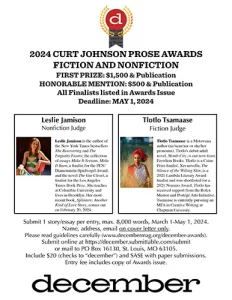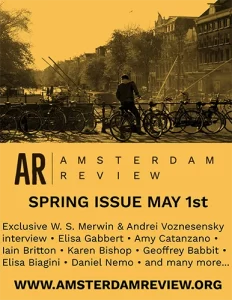Red Plenty
As a kid growing up in a rural community in central Ohio during the 1960s, I heard the word “Communist” bandied about as if it were the lowest form of life to crawl across the American landscape. I thought for a time they had to be like the ogres in Grimm’s fairytales who kidnapped children and ate them. Surely they lurked behind every corner. They were to be feared and exterminated. Commies were bad.
As a kid growing up in a rural community in central Ohio during the 1960s, I heard the word “Communist” bandied about as if it were the lowest form of life to crawl across the American landscape. I thought for a time they had to be like the ogres in Grimm’s fairytales who kidnapped children and ate them. Surely they lurked behind every corner. They were to be feared and exterminated. Commies were bad.
When I reached high school and escaped somewhat the backwoods dogma of my town, I began to read about Communists on my own. What was all the fuss? They didn’t seem that bad. The Russians, those mysterious people, simply had a different form of government. Did they really want to take over our country, give us a “red Reader’s Digest” as Allen Ginsberg wrote in his great satirical poem, America? Who was marketing all this fear? What did Communists look like? Who were they? By the time I reached college, I knew at least that Communists did not eat children.
I wish I’d had Francis Spufford’s wonderful new book, Red Plenty, back then. Here is a fine work that presents the Soviet people to us in ways we haven’t seen before. Included is a series of episodes ranging from the late 1930s to the early 1970s, which show us aspects of the Russian people we may not have encountered in other more traditional writings. Many of the blurbs for this book have used the word “strange,” but I find it imaginative. It is a bit of a genre-buster, and perhaps that is what mystifies some readers. Spufford states in his introduction that his book is neither a novel nor a work of history. What is it then? “Best to call this a fairytale then,” Spufford writes, “though it really happened, or something like it. And not just any fairytale, but specifically a Russian fairytale, to go alongside the stories of Baba Yaga and the Glass Mountain that Afanaseyev the folklorist, collected when he rode over the black earth of Russia, under its wide sky, in the nineteenth century.”
Indeed, this collection of stories or episodes, snapshots maybe, will leave you walking away with a more intimate relationship with the Soviet Utopian Experiment. In the story titled “Prodigy, 1938,” a boy genius is hired as a consultant by a plywood factory to increase production efficiency, then begins to ponder his applications on a grander scale to take it to the next level, and then the next. Until what? Until the entire Soviet economy is fixed?
“Little Plastic Beakers, 1959” tells of an American exhibit at a conference on youth and sport by the Moscow City Soviet. This is my favorite East meets West story, in which two Russian university volunteers are delegated by district officials to “give comments” while on tour of the exhibit. Armed with “debating points” amidst a crowd of fellow Russians both envious and curious about the American way of life, one of the volunteers presses the tour guide with more and more statements attempting to diffuse the near-utopian presentation of US living:
“You make everything in America sound so good,” Galen broke in with a rush. “You make it sound as if the country is nothing but a garden of roses. But this is not true at all is it? Because in America, there are terrible social problems. What, what about, the great terrible evil of racial discrimination, which you must know very well yourself?”
Roger, the tour guide, a student of Russian from the University of Virginia, holds up well under the assaults but eventually wears down. So do several of the exhibit-goers. “Why don’t you leave the poor boy alone?” hisses a woman in the crowd. Encapsulated in this moment is that famous meeting between then vice-president Nixon and Krushchev at the American National Exhibition, with the former bragging of the magnificence of the American washing machine. That meeting was a battle of wills. Neither backed down.
“The Unified System, 1970” is a more offbeat story, perhaps one of the pieces which earned the book the “strange” monikers. Here we have the medal-laden Lebedev attempting to meet with a Soviet minister. He is put on permanent hold in the waiting room while others come and go. He is told to come back another day. He prefers to wait. While he waits, a parallel story unfolds describing in almost medical terms what 50 years of smoking has done to Lebedev’s lungs. Descriptive portraits of how the chemicals in tobacco smoke have invaded his DNA and disturbed the cell tissues eventually causing a carcinoma are given. His increase in coughing worsens to the point where he is forced to leave without even having glimpsed the minister, but not before one wonders about the dual journey of his lungs’ struggle to survive and Lebedev’s own life’s story.
I can see this book as having a fairytale life down the road, though right now it seems too close to our present time to take on that aura. But it will in time, I’m certain. And I wonder how future generations will perceive it. Spufford writes:
The Russian fairytale began to be told in the decade of famine before the second world war, and it lasted officially until communism fell…This book is about that moment. It is about the clearest version of that idea, the most subtle of Soviet attempts to pull a working samobranka out of the dream country. It is about the adventures of the idea of red plenty as it came hopefully along the high road.
I thank Mr. Spufford for this long overdue adventure.





